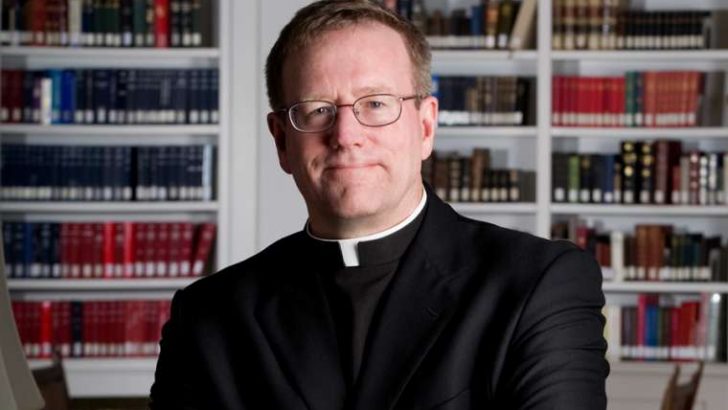Few articles have raised more eyebrows among Catholics online of late than James Carroll’s inflammatory piece in theatlantic.com entitled ‘Abolish the priesthood’ and subtitled ‘To save the Church, Catholics must detach themselves from the clerical hierarchy – and take the Faith back into their own hands’.
By no means worthless, and in some ways a deeply painful read, the article nonetheless is packed with historical glitches, errors, and gaps, and one curious bit in it is his definition of clericalism, which he describes as “the vesting of power in an all-male and celibate clergy”. Is that really what clericalism is?
I’d have thought a more plausible and useful definition is the one deployed by Bishop Robert Barron, who described it as a tendency to treat ordination as a more important sacrament than baptism. That tendency, effectively countered by Fr Timothy Radcliffe’s conviction that “Christianity will flourish in the 21st Century if we grasp that the Church is above all the community of the baptised”, has over the years evidently nurtured both a quasi-sacramental cronyism among clergy, and an unhealthy degree of deference towards clergy among the laity.
Dubious
If Carroll’s definition is dubious, then so too is his argument about how clericalism arose, a clumsy Cliff Notes account of the origins of the priesthood that rhymes depressingly with that put forward by Fr Tony Flannery in the notorious Reality articles that got him into trouble with the Vatican’s doctrinal office a few years back.
And yet, there’s something genuinely insightful in how Carroll asks of clergy: “Should we be surprised that men invited to think of themselves on such a scale of power – even as an alter Christus, ‘another Christ’ – might get lost in a wilderness of self-centeredness?”
“We get an insight into Pope Francis’ likening of clerical child abuse to Black Masses”
Here we see an attempt to answer the question so recently reflected on by Pope Emeritus Benedict XVI about why constant recourse to and celebration of the sacraments might not have prevented certain clergy from committing or concealing abuse. Here too we get an insight into Pope Francis’ likening of clerical child abuse to Black Masses: abuse of children by priests is, literally, Satanic.
In fairness to The Atlantic, it subsequently published a powerful riposte to Carroll’s piece in Susan Bigelow Reynolds’ ‘Everybody wants a revolution, but nobody wants to do the dishes’. Recalling proposals that – she claims – entail traditionalists circling the wagons, Carroll’s article in effect simply puts forward a liberal reflection of such ideas. “But the result is the same: a smaller, purer Church of Good People,” she writes, instead describing what she has seen achieved by inclusive Christian communities where priests and people work side by side.
Jason Steidl, at ncronline.org, writes in ‘The wounded body of Christ: a response to Carroll’s critics’, that too many critics of Carroll’s piece have been too swift to judge. “The suffering evident in Carroll’s autobiographical article presents a pastoral problem that requires a pastoral approach,” he writes, stressing that it’s important to see beyond the errors in the piece. “A pastoral orientation calls us to see beyond Carroll’s words to the person who is deeply wounded and crying out for help.”
* * *
Other sources worth checking…
- Elsewhere on the Catholic internet, it’s worth reading the May 21 Twitter thread by @disabledsaints on how he is hopeful but not convinced that the installation of Archbishop Wilton Gregory in Washington DC could be a turning point for the US Church, as well as Michael Bayer’s washingtonpost.com article of the same date entitled ‘Archbishop Gregory will lead Washington’s Catholics. Here are 5 key issues.’
Henry Karlson, meanwhile, at patheos.com/blogs/henrykarlson argues in ‘Cardinal Burke’s fight against religious liberty and the ideals of the United States’ that the Wisconsin-born prelate is defying both the teachings of Vatican II and St John Paul II, while over at wherepeteris.com, Brian Killian argues powerfully for ‘The harmony of Amoris Laetitia and Veritatis Splendor’.
Meanwhile, the twitter account for firstthings.com has thrown up a 2001 article on ‘Auden and the limits of poetry’. Sadly, it’s very hard to imagine anything of that calibre being published on that once-wonderful site now.


 Greg Daly
Greg Daly Bishop Robert Barron.
Bishop Robert Barron. 